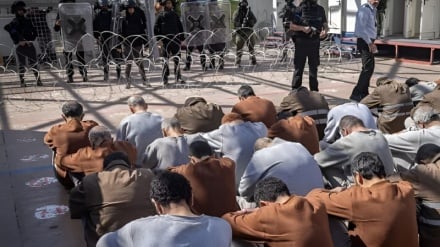Global wave of recognizing Palestine; mounting pressure on Israeli regime
-

Global wave of recognizing Palestine
Pars Today – The rapid recognition of the State of Palestine by countries around the world has become a milestone in international politics. This wave, alongside widespread support from the United Nations, has heightened the anger and concern of Israeli leaders over their growing isolation.
Recent international meetings in New York, focusing on ending the Gaza war and establishing an independent Palestinian state, have opened a new front of global support for a two-state solution. At the September 12 session, a resolution was adopted in the United Nations General Assembly with the backing of 142 countries, calling for the recognition of Palestine—an action that reflects a significant shift in the global diplomatic balance.
France and Saudi Arabia have jointly taken the initiative to organize a second meeting on this issue. French President Emmanuel Macron has announced that his country will officially recognize Palestine—an action that, given the prominent position of the Jewish community in France, has resonated widely among Western and regional allies. In addition to France, countries such as Canada, the United Kingdom, Australia, New Zealand, and several other European nations have also recognized Palestine.
In contrast, Germany continues to act cautiously. The country’s Chancellor has stated that recognizing Palestine is a final step contingent on the peace process; however, surveys indicate that the majority of Germans support immediate recognition of the State of Palestine. Both domestic and international pressures on Berlin to change its stance are increasing.
The United Nations, through the Secretary-General and the new President of the General Assembly, has expressed its support for the establishment of a Palestinian state and emphasized that the world cannot remain indifferent to the crimes and restrictions imposed by the Israeli regime on the people of Gaza.
Meanwhile, Tel Aviv, facing unprecedented pressure, has responded by deploying forces to the West Bank and threatening to annex additional parts of the territory. Netanyahu has also emphasized economic and military self-sufficiency while warning of international sanctions and pressures.
If this trend continues, it could reshape the political map of the Middle East and further tighten the squeeze on the Israeli regime, while the humanitarian crisis in Gaza persists.


